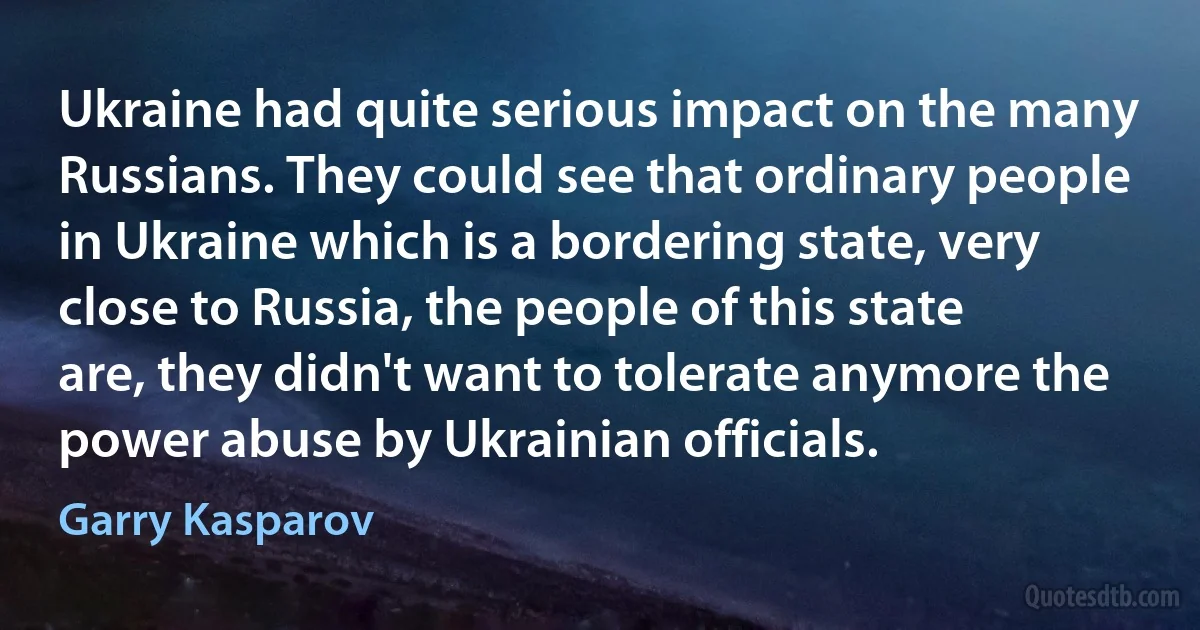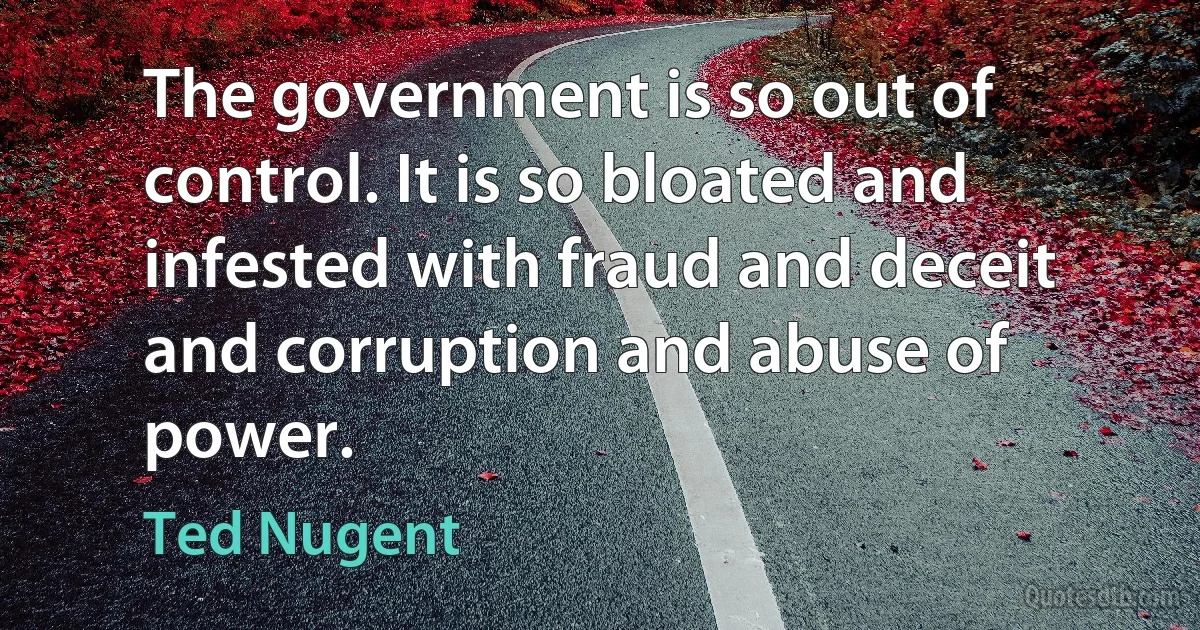Abuse Quotes - page 10
I find that Muslims are often allies. Their critique offers a salutary contrast to western indifference and inertia. Muslims rightly condemn the collapse of western moral authority, the failure of nerve that has created our epidemics of crime, drug abuse, family breakdown and promiscuity. They are right to be horrified at the wholesale destruction of the sacred, and the worship instead of consumer choice. They are right to point to the meaninglessness and vacuity of secular society, its arrogance and the paralysis of its institutions. This is, after all, why so many are turning to fundamentalism in Christianity and Judaism as well as Islam.

Melanie Phillips
When I was younger I had an incredible sensitivity; I suppose there were too many brain cells, or they were organised in the wrong way, and they've either reorganised themselves or I've lost lots of them through alcohol and substance abuse. I can get along without being terrified now. Maybe I've just got used to it.

Mike Oldfield
For the man who considers himself the best critic generally studies sound and unsound composition with equal interest, being no more greedy for lofty utterances to praise than for contemptible ones to ridicule. In this way technique, grandeur, and propriety in the use of the Latin language are particularly underrated by the armchair critics, who, with an insensibility which goes hand in hand with scurrility, and wishing to read only what they may criticize, cannot, by their very abuse of literature, be making a proper use of it.

Sidonius Apollinaris
It is admitted that the power of taxing the people and their property is essential to the very existence of Government, and may be legitimately exercised on the objects to which it is applicable, to the utmost extent to which the Government may choose to carry it. The only security against the abuse of this power is found in the structure of the Government itself. In imposing a tax, the legislature acts upon its constituents. This is, in general, a sufficient security against erroneous and oppressive taxation. The people of a State, therefore, give to their Government a right of taxing themselves and their property, and as the exigencies of Government cannot be limited, they prescribe no limits to the exercise of this right, resting confidently on the interest of the legislator and on the influence of the constituent over their representative to guard them against its abuse.

John Marshall
Age after age, history repeats itself when men and women, in their ignorance, limitations and pride, sit in judgment over the God-incarnated man who declares his Godhood, and condemn him for uttering the Truths they cannot understand. He is indifferent to abuse and persecution for, in his true compassion he understands, in his continual experience of Reality he knows, and in his infinite mercy he forgives.

Meher Baba
Cryptocurrencies have given rise to an entire new criminal industry, comprising unregulated offshore exchanges, paid propagandists, and an army of scammers looking to fleece retail investors. Yet, despite the overwhelming evidence of rampant fraud and abuse, financial regulators and law-enforcement agencies remain asleep at the wheel.

Nouriel Roubini
When we examine the moments, acts, and statements of all kinds of people- not only the grief and ecstasy of the greatest poets, but also the huge unhappiness of the average soul, as evidenced by the innumerable strident words of abuse, hatred, contempt, mistrust, and scorn that forever grate upon our ears as the manswarm passes us in the streets -- we find, I think, that they are all suffering from the same thing. The final cause of their complaint is loneliness.

Thomas Wolfe
No greater mistake can be made than to think that our institutions are fixed or may not be changed for the worse. ... Increasing prosperity tends to breed indifference and to corrupt moral soundness. Glaring inequalities in condition create discontent and strain the democratic relation. The vicious are the willing, and the ignorant are unconscious instruments of political artifice. Selfishness and demagoguery take advantage of liberty. The selfish hand constantly seeks to control government, and every increase of governmental power, even to meet just needs, furnishes opportunity for abuse and stimulates the effort to bend it to improper uses... The peril of this Nation is not in any foreign foe! We, the people, are its power, its peril, and its hope!

Charles Evans Hughes
The issues raised in the historic conflict between Charles I, resting his claim to govern Britain on the divine right of kings, and Parliament - representing, however imperfectly, a demand for the wider sharing of power - concerned the use and abuse of state power, the right of the governed to a say in their government, and the nature of political freedom. The Levellers grew out of this conflict. They represented the aspirations of working people who suffered under the persecution of kings, landowners and the priestly class, and they spoke for those who experienced the hardships of poverty and deprivation. They developed and campaigned, first with Cromwell and then against him, for a political and constitutional settlement of the civil war which would embody principles of political freedom, anticipating by a century and a half the ideas of the American and French revolutions.

Tony Benn
Present party designations have become empty of all contents...Vastly extended State expenditure, vastly increased demands from the taxpayer who has to provide the money, social reform regardless of expense, cash exacted from the taxpayer already at his wits' end-when were the problems of plus and minus more desperate? How are we to measure the use and abuse of industrial organization? Powerful orators find "Liberty" the true keyword, but the I remember hearing from a learned student that of "liberty" he knew well over two hundred definitions. Can we be sure that the "haves" and the "have-nots" will agree in their selection of the right one? We can only trust to the growth of responsibility; we may look to circumstances and events to teach their lesson.

John Morley, 1st Viscount Morley of Blackburn
Though I'm no expert on all things Pantera, I did hear their version of 'Cat Scratch Fever' and it was exceedingly white. No soul, no balls, no feel. Caucasian all the way. Elements of dope, booze and heroin disconnect quite apparent as usual. There is no excuse for such horrifically negative, irresponsible, criminal, America-wrecking behavior as such chimp-like substance abuse. Period. They appeared as Ozzy-like zombies on TV. Ya think. American drunks and dopers are allahpuke terrorists' favorite allies. Damn them. Damn them all.

Ted Nugent
If you make the light dominate too much, the breadth of the planes leads to the absence of half tints, and consequently to discoloration; the opposite abuse is harmful above all in big compositions destined to be seen from a distance, like ceilings, etc. In the latter form of painting, Paul Veronese goes beyond Rubens through the simplicity of his local color and his breadth in handling the light... Veronese had greatly to strengthen his local color in order that it should not appear discolored when immunized by the very broad light he threw on it.

Eugène Delacroix



